Candidates make their pitch ahead of November 26
Candidates vying for the seat of Melbourne in the upcoming Victorian State Election spoke with Melburnians in October about a number of key local and wider issues.
Victorians head to the polls for a second time in five months on November 26 and the seat of Melbourne, which includes Docklands, the CBD and a host of surrounding inner-city suburbs, is set to be hotly contested.
Melbourne has been held by Greens MP Ellen Sandell since 2014, when her party prevailed in the electorate for the first time, and in 2018 Ms Sandell narrowly held onto the seat to secure a second term.
While the incumbent MP starts as a warm favourite to claim victory for a third straight time, she faces a stern test in the form of Labor candidate Rebecca Thistleton who has spent the past few months knocking on doors and raising her profile around the electorate.
Both lower house candidates, plus Nicola Foxworthy (Reason Party candidate for Melbourne) and Colleen Bolger (Victorian Socialists) met with locals at the CBD’s Kelvin Club on October 13, in an event organised by Residents 3000 with discussion chaired by EastEnders president Stan Capp.
Also in attendance were two upper house candidates for the Northern Metropolitan region; the Liberal Party’s Evan Mulholland and the Liberal Democratic Party’s Paul Silverberg.
The Liberal’s lower house candidate, George Palackalody, was not in attendance.
State and nationwide issues were prominent throughout the evening — namely the cost of living, housing affordability and climate change — as candidates pitched their party’s policies and what they would do to contribute to solutions.
Locally, the decline in CBD safety and the expected safe injecting room near Flinders Street Station also emerged as hot-button issues.
If the electorate votes in a similar manner to the 2018 election, the lower house is likely to be a showdown between the Greens and Labor.
A clear divide emerged between the two candidates on who will make the bigger impact on Melbourne.
Ms Sandell boasted the Greens’ track record on how they’ve pushed Labor in recent years.
“During the pandemic the Greens were able to sit at the negotiating table with the government. We secured things like financial support for renters who lost work during COVID, grants for international students who were struggling to survive, and a lot more.”
However, Ms Thistleton said this was simply not enough for constituents.
“The Greens will talk about what they will push for and what they will advocate for and talk about a style of politics that isn’t entirely without merit and isn’t entirely different in values to what Labor is presenting. But it doesn’t get things done, and it especially doesn’t get things done locally. It is not good enough to be standing on the sidelines and offering criticisms of decisions well after the ink has dried.”
The Victorian Electoral Commission will share voting centre locations and opening hours from Wednesday, November 2.
In 2018, Docklanders were able to vote at Library at The Dock.
What they said …
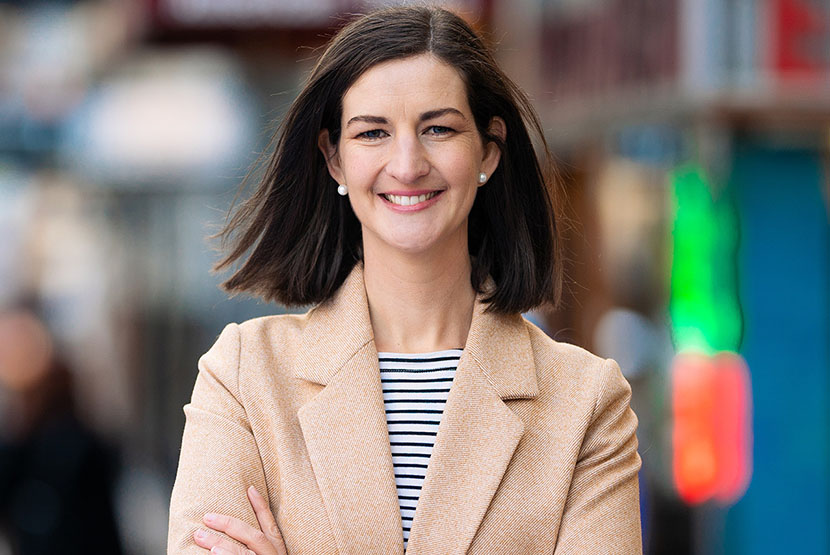
Ellen Sandell, MP for Melbourne (Greens):
“I think it’s more important than ever to have Greens and independent voices in parliament, pushing the next government to go further and faster on issues that matter to Victorians and holding the government to account.”
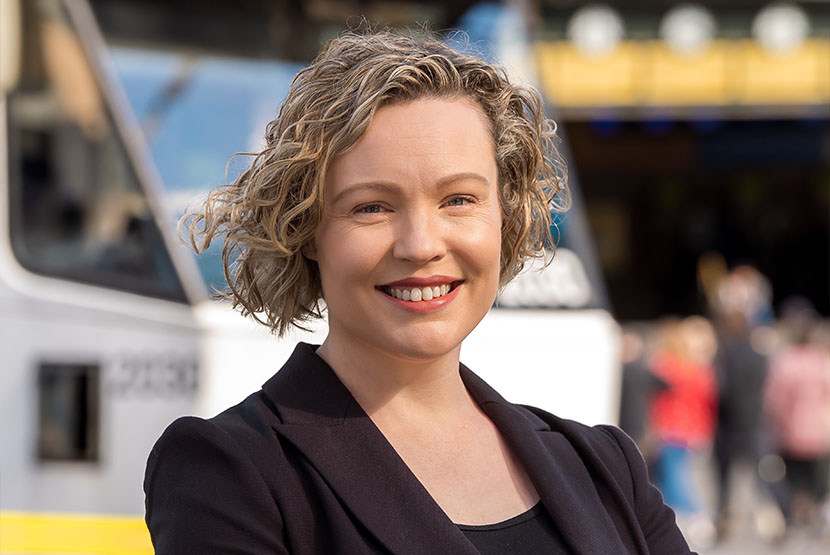
Rebecca Thistleton, Labor candidate for Melbourne:
“Sometimes people say that it doesn’t matter who you vote for, that the outcome is just the same. But that cannot be said in Victoria — not after what has been achieved [by Labor] in the past eight years.”
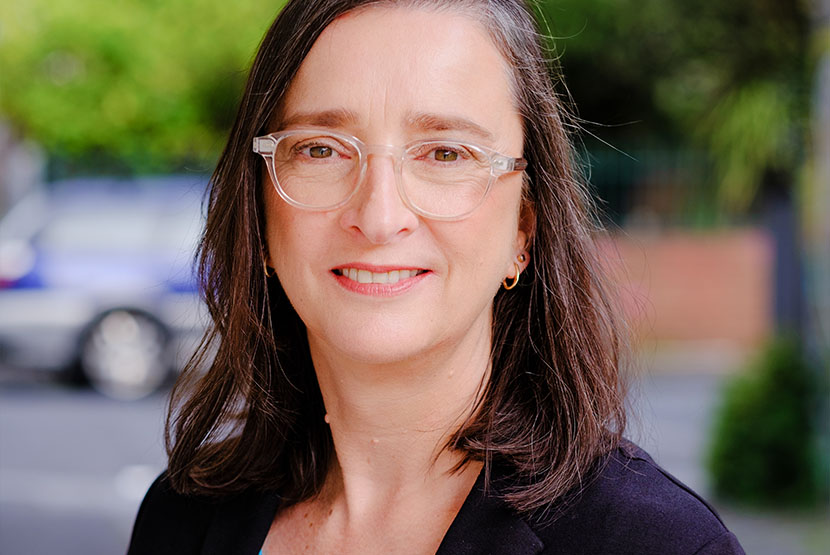
Nicola Foxworthy, Reason Party candidate:
“The Reason Party represents the change that I want to see in politics. The approach — evidence-based, compassionate and pragmatic — has shown that listening to people, working together, can successfully deliver real results, real solutions to real problems.”
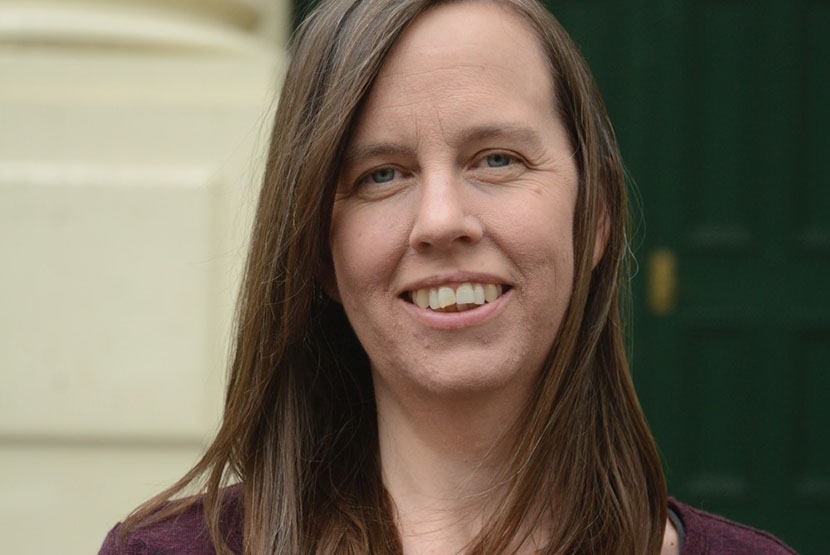
Colleen Bolger, Victorian Socialists candidate:
“In regards to the cost of living pressures, socialists talk about it as a crisis of inequality. We need to be talking about it in terms of wage justice and social justice, because it’s not the case that everyone is experiencing these issues equally.”
Evan Mulholland, Liberal Party candidate (upper house):
“Cost of living is far and away one of the biggest issues in this election. It’s all many people talk about. Looking around at the CBD in comparison to what it used to be is pretty heart-breaking. Every ‘for lease’ and ‘for sale’ sign to me is a family, is a small business owner that’s really struggled throughout the pandemic.”
Paul Silverberg, Liberal Democratic Party candidate (upper house):
“[Born in the former USSR] I know, quite well, what it’s like to have government interfering in each part of your life, and it always ends in failure … a lot of the policies that I have seen not just over the last two years but particularly coming from the current Labor government, is almost like looking in a time machine.” •

Council “plays hard ball” over Port of Melbourne land rezoning
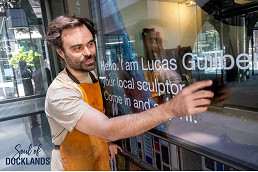





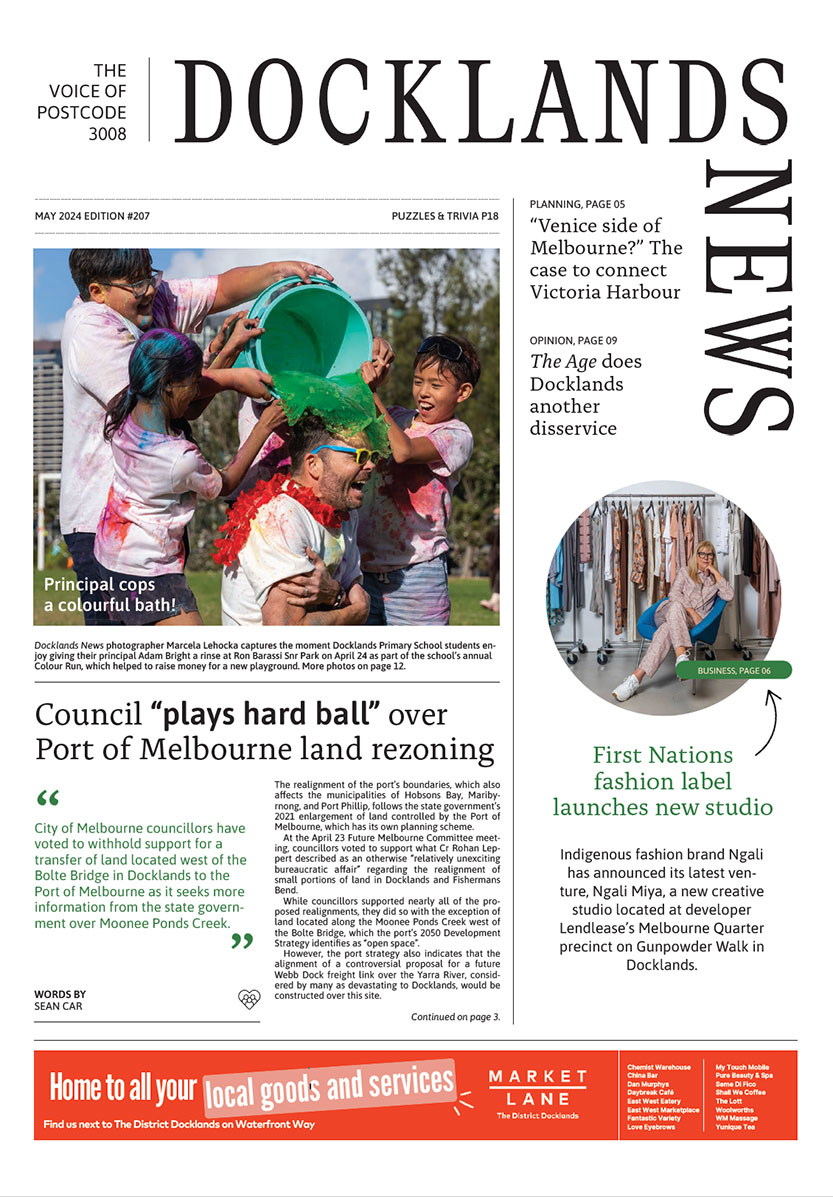 Download the Latest Edition
Download the Latest Edition
